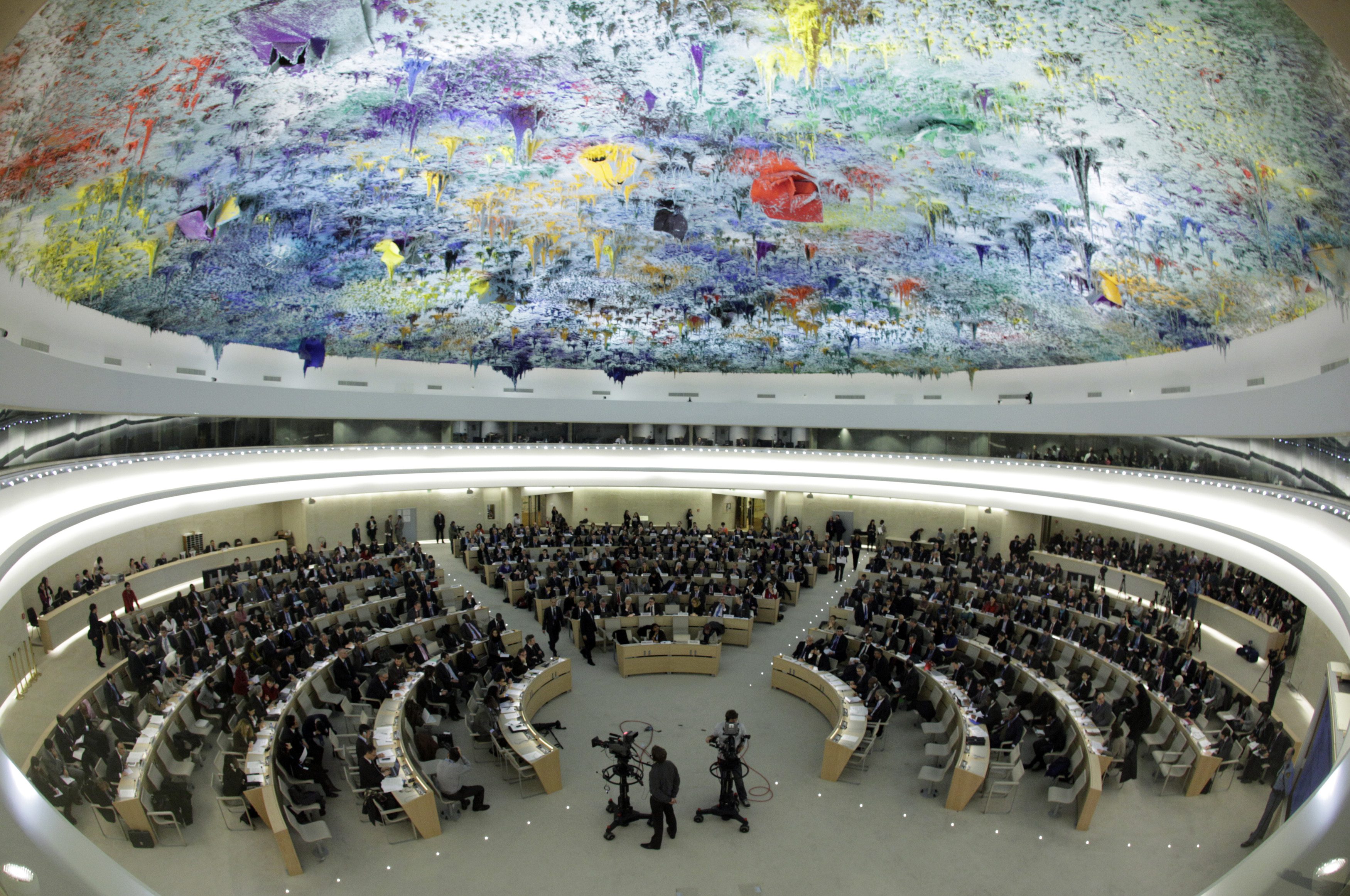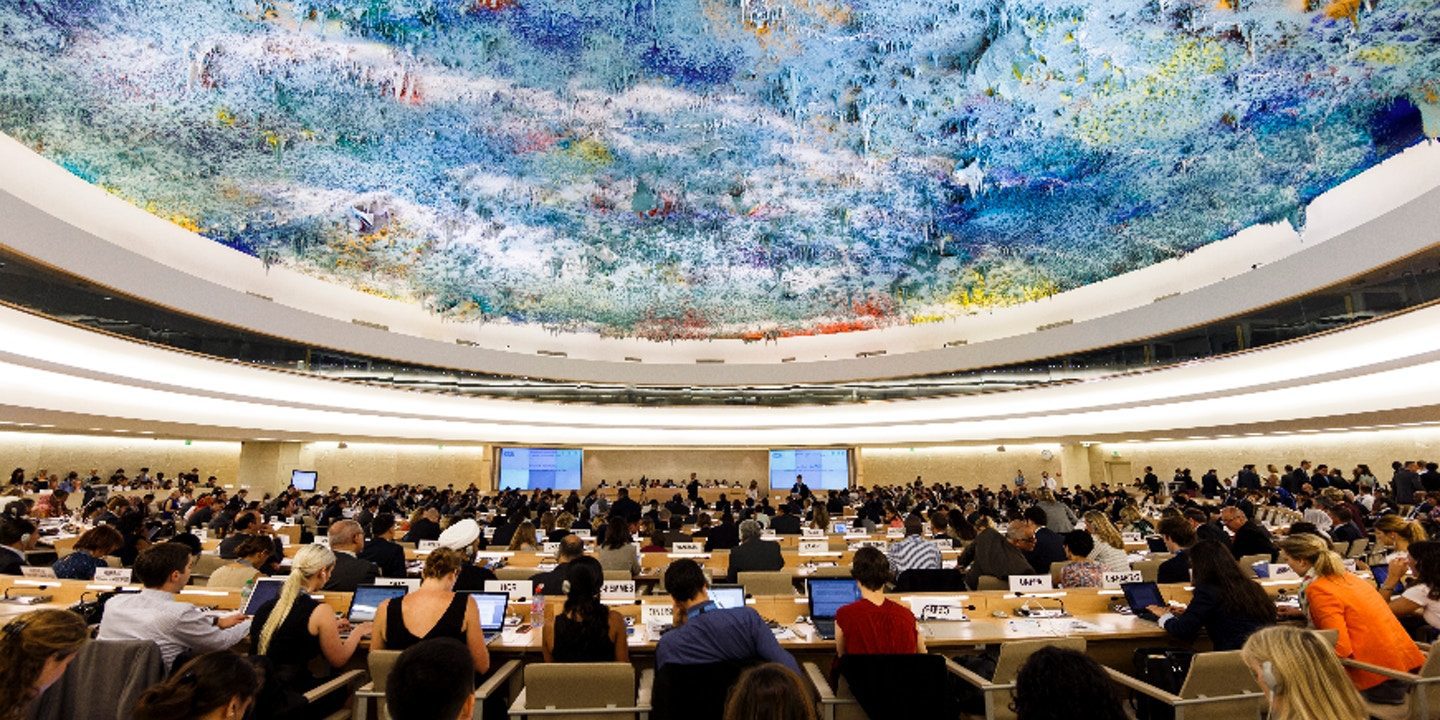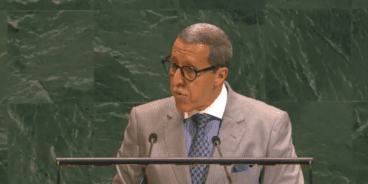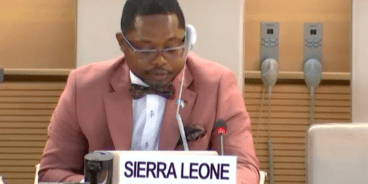

Statement delivered on behalf of the Group of Friends of R2P on Item 5 at the 48th session of the Human Rights Council
Click here for the video message delivered by Luxembourg on behalf of the UN Group of Friends of the Responsibility to Protect at HRC48.
Madam President,
I have the honour of delivering this statement on behalf of the Group of Friends of the Responsibility to Protect (R2P). A list of co-sponsors is available on the Extranet.
The Group of Friends wishes to take this opportunity to re-affirm its strong commitment to the multilateral human rights system and the integrity and independence of Special Procedures.
As patterns of human rights violations and abuses and violations of international humanitarian law often serve as early warning signs of atrocity crimes, human rights bodies and mechanisms play a fundamental role in helping states to uphold their Responsibility to Protect. According to the UN Framework of Analysis for Atrocity Crimes, developed by the Office on Genocide Prevention and the Responsibility to Protect,
“Atrocity crimes in general and genocide in particular are preceded by less widespread or systematic serious violations of international human rights and humanitarian law. These are typically violations of civil and political rights, but they may include also severe restrictions to economic, social and cultural rights, often linked to patterns of discrimination or exclusion of protected groups, populations or individuals.”
During today’s General Debate, we wish particularly to stress the vital role of Special Procedures in assisting States and other stakeholders in the prevention of human rights violations and abuses, and therefore to the prevention of genocide, war crimes, crimes against humanity and ethnic cleansing, as was recently highlighted in the Report of the High Commissioner for Human Rights on the role of Special Procedures (A/HRC/48/21).
Special Procedures are indispensable in informing the Human Rights Council (HRC) and its members and observers on both country-specific and thematic situations which require attention and engagement. As outlined in report 48/21, Special Rapporteurs not only perform important public monitoring and reporting functions, but may also facilitate early action through country visits, consultations with various national stakeholders and issuing statements of concern. As such, they are essential in mobilizing concerned states, as well as the wider international community, about necessary action to prevent situations from escalating.
In recent years, we have seen various Special Procedure mandate holders make direct and concrete linkages between their unique mandates and the prevention of atrocity crimes. In his 2019 report (A/74/243), the Special Rapporteur on the right to education specifically focused on the connection between education and the prevention of atrocity crimes or grave human rights violations. Recommendations included guidance on how the education system can contribute to addressing hate speech and intolerance, both of which may constitute enabling factors to creating an environment conducive to atrocities. The Special Rapporteur also highlighted the role education can play in fostering knowledge and understanding of past atrocity crimes as a preventive tool. Mandate holders such as the Special Rapporteur in the field of cultural rights or the Special Rapporteur on the promotion of truth, justice, reparation and guarantees of non-recurrence have equally highlighted the role of their mandates in preventing (recurrence) of atrocity crimes.
Special Procedures can make pivotal contribution to enhance our understanding of the connection between atrocity prevention and various unique thematic mandates; Special Procedures may contribute to raising the alarm in situations of imminent risk, but also provide guidance and recommendations to all states to strengthen their national atrocity prevention capacities.
In addition, country-specific mandate holders often point us to unique warning signs within countries which may be at particular risk of atrocity crimes. In the past, Special Rapporteurs were often the first to warn of risk factors of situations which later escalated into atrocities. For example, report 48/21 specifically highlights that “In 1994 in Rwanda, the Special Rapporteur on extrajudicial, summary or arbitrary executions forewarned of a potential genocide.”
Madam President,
While Special Procedures regularly focus on or address the role of prevention in their reporting and documentation, the gap between early warning and early action persists. The problem is often not the availability of or access to information but how best to ensure appropriate and timely attention to the issues raised by mandate holders.
To help close this gap, and in line with the recommendations of the report, we wish to encourage UN member states to:
-
-
- Actively and fully cooperate with Special Procedures, including by issuing standing invitations and allowing visits, where applicable;
- Ensure that the establishment and renewal of mandates for Special Procedures include, where appropriate, a specific reference to the prevention of and early warning for atrocity crimes, in line with their mandate;
- Implement recommendations by Special Procedures to strengthen national atrocity prevention capacities, including, where applicable, by creating national mechanisms for preventing atrocity crimes and by appointing or strengthening a national Focal Point on R2P;
- Explore avenues to ensure greater information sharing and coordination among different mandate holders;
- Ensure mandate holders have access to brief and share information with various UN mechanisms, including the Security Council, General Assembly and UPR, as well as Treaty Bodies;
- Work with the Office of the High Commissioner to strengthen its capacity to effectively support Special Procedures mandates in terms of prevention and early warning for atrocity crimes.
-
While Special Procedures provide us with unique, precise and action-oriented information to prevent atrocity crimes, we must become better at utilizing this information to uphold our individual and collective Responsibility to Protect.
Thank you.
Related Content


Statement on behalf of the Group of Friends of the Responsibility to Protect at the 2025 UN General Assembly Debate on R2P
